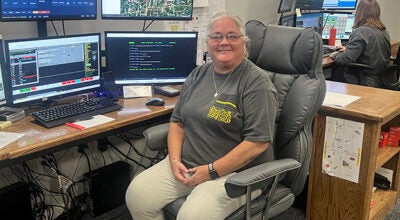Rep. Becky Currie: House, Senate should communicate better
Published 8:42 pm Monday, January 8, 2018
The first week of the new Mississippi legislative session saw the House of Representatives pass a measure to restore public roadways.
However, Rep. Bob Evans, D-Monticello, who serves Copiah, Covington, Jefferson Davis, Lawrence and Simpson counties, said very little progress is being made at the statehouse.
“Everything’s just coming down the row,” he said. “The Republicans have got everything laid out, and they are in lockstep.”
According to Evans, Philip Gunn — the speaker of the Mississippi House of Representatives — controls the chamber’s legislative agenda, and his Democratic colleagues are often kept in the dark.
“The biggest frustration is not really knowing what’s going on ahead of time,” Evans said. “We would be on board with some of the stuff they’re trying to pass, but they only give us five or 10 minutes to look at it before it comes up for a vote.”
Rep. Becky Currie, R-Brookhaven, who serves Copiah, Lawrence and Lincoln counties, said the main problem in Jackson is a lack of open communication between the two chambers of Congress.
“I believe the governor would sign many of our bills into law if the Senate would pass them,” she said.
Sen. Sally Doty, R-Brookhaven, who represents Lincoln and Lawrence counties and portions of Copiah and Walthall counties, said she is currently working on several important measures.
In the first few days of the session, the House sent a pair of infrastructure bills to the Senate, and Rep. Vince Mangold, R-Brookhaven, who serves Franklin, Jefferson Davis, Lawrence, Lincoln and Pike counties, is pleased with that progress.
“We sent several bills out pretty quick,” he said. “And I think they’ll turn out good if they make it through the other side.”
One piece of legislation approved by the House allots $50 million to the repair of existing roads and bridges. If signed into law, that money would be distributed statewide.
“Rather than going in and getting a legitimate highway bill to repair our existing infrastructure, they voted for a bond that will cover all the cities and towns in the whole state,” Evans said. “If you take $50 million and spread it among all those entities, it doesn’t get much done.”
Mangold said the bond isn’t large enough to cover all repairs, but he said it is a sufficient start.
“Really, it’s just a Band-Aid,” Currie said. “All of us in the House are more concerned about local roads and bridges than giving more money to MDOT.”
Evans questioned the Legislature’s transportation committee about the bond, and he said the committee’s chairman blamed the lack of available funds on “dwindling revenues.”
“I asked him, ‘Do you think the fact that revenues are dwindling has anything to do with the corporate tax cuts you passed?’” Evans said.
Corporate tax cuts are typically used as means of luring fresh industry to Mississippi, thereby stimulating the state’s economy in the long-term. But Evans disagrees with that approach.
“They’ve reduced all these taxes, but having good infrastructure is an even better economic incentive for growing business,” he said.
So far, based on the wording of the laws pushed through the state’s lower chamber, Evans believes the Republican-controlled Congress is looking to place roads and bridges on the backburner.
“Unfortunately, it looks like it’s going to take a tragedy of some kind to force them to do something about our infrastructure,” he said.





